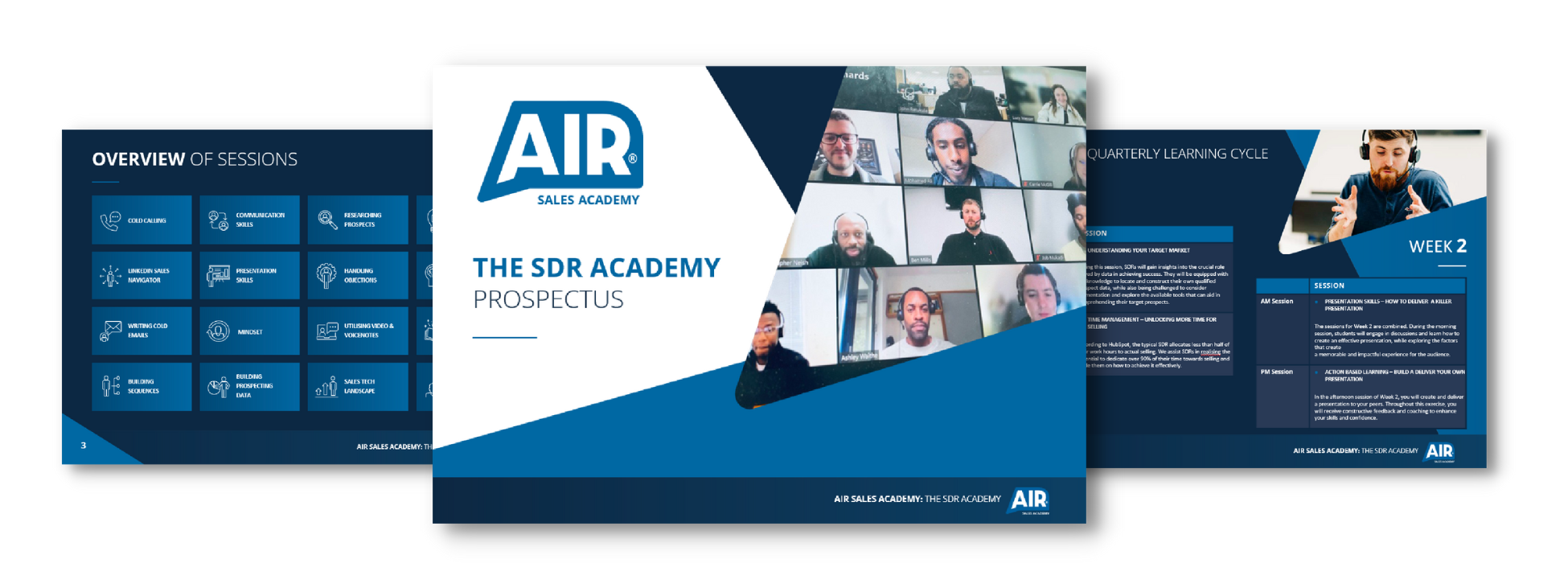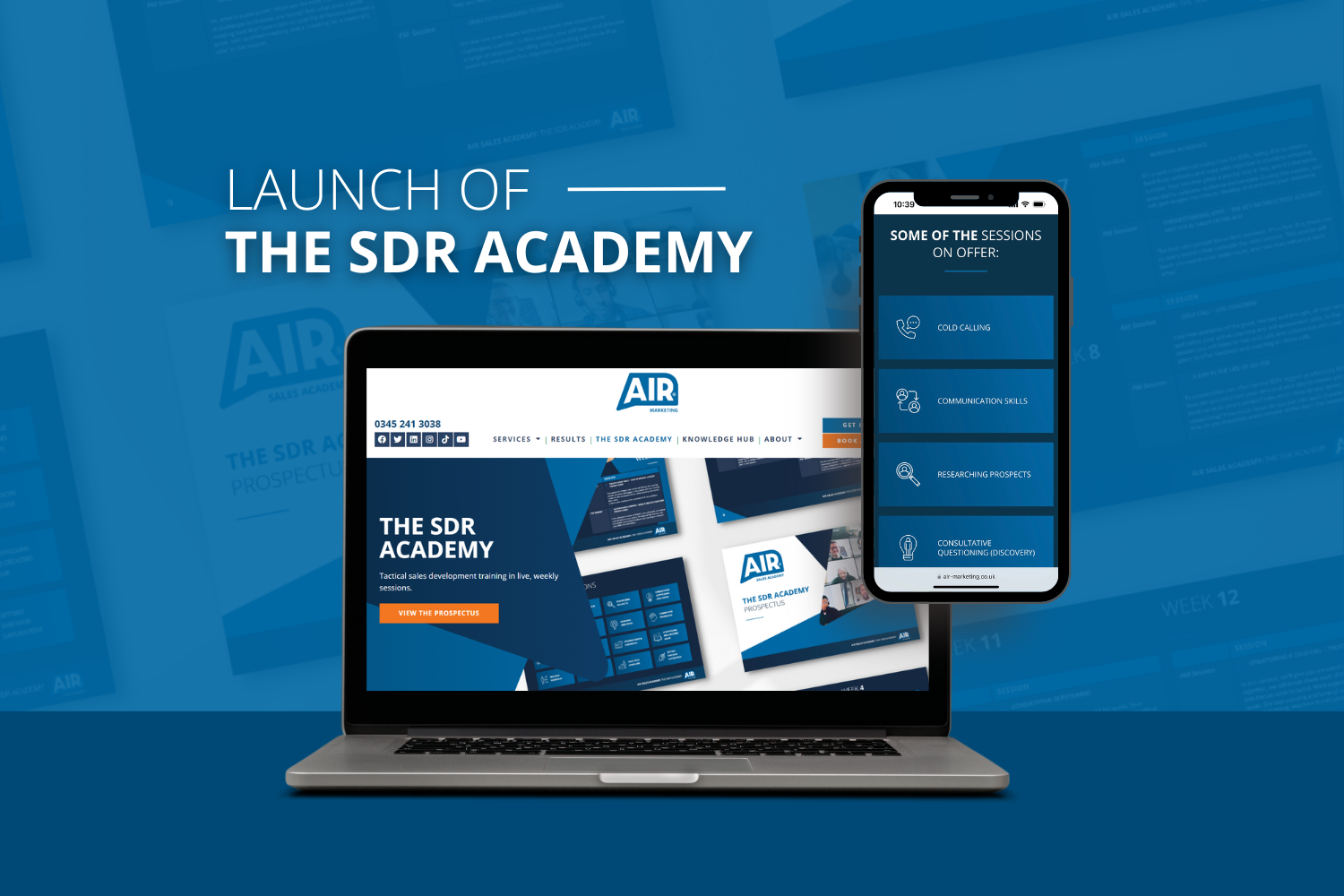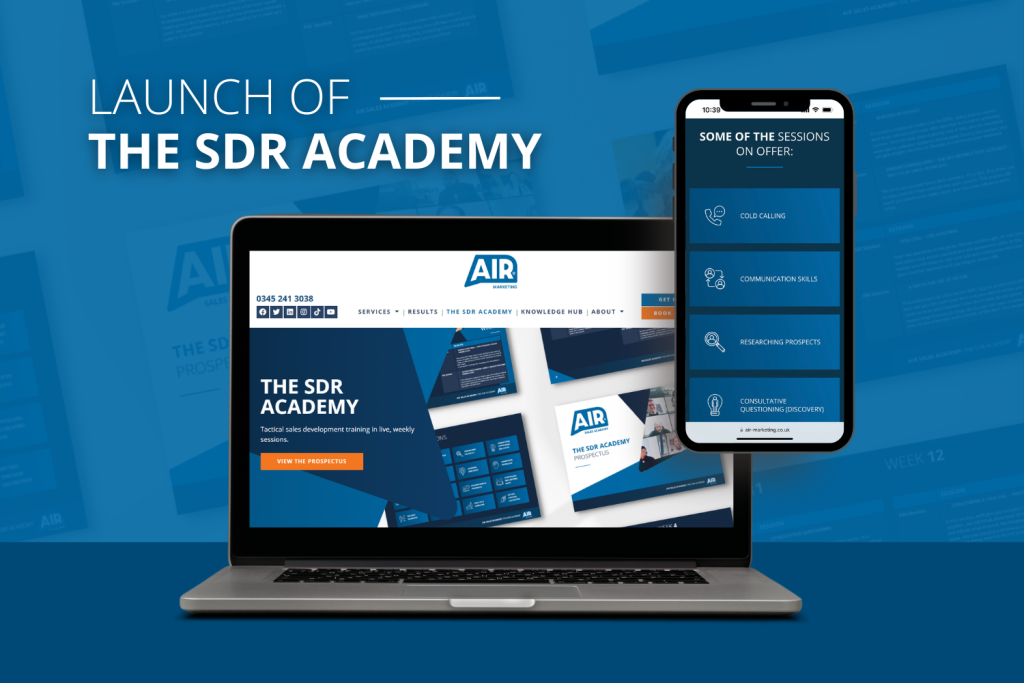It’s not your imagination, sales development is definitely getting harder. Outbound prospecting is certainly getting harder. Doing the same thing, applying the usual techniques, won’t cut it anymore. More than ever, there’s a need to be coaching and training your SDRs regularly, particularly in the early part of their career.
But what’s the best way to train your sales team? Should you have an in-house trainer or send SDRs to external training courses? Here, we’ll look at the pros and cons of in-house and outsourced sales training and enablement.
Benefits of in-house sales training
Awareness of the business: A trainer who works within the business knows the internal values, processes and systems. You can work through real life situations and confidential case studies.
Ongoing support: In-house trainers are able to train and coach consistently, and provide ongoing support. They’re not simply providing a one-off session, never to be seen again.
Accountability: Working in-house, the trainer can hold participants to account and follow up on the training with them.
Challenges of in-house sales training
Expensive commitment: There’s the ongoing cost of hiring trainers rather than the variable outgoing of paying for external training courses.
Repetition of content: In-house trainers tend to teach the same things again and again. Being ‘in the bubble,’ they’re less exposed to new, external content and ideas. As Albert Einstein wisely pointed out, “Insanity is doing the same thing over and over again and expecting different results.”
Colleagues as fellow students: Training alongside your team mates tends to mean that you’re bringing similar experiences to the table. You’re not learning about different environments, challenges and case studies.
Benefits of outsourced sales training
Experts in their field: External trainers tend to be subject matter specialists. They’re constantly learning and updating their knowledge to pass on to their students.
Established programs: Outsourced training is generally a one stop shop. Participants follow a program over a set time (e.g. a one day or half day training session). It’s a well-established and prepared program with specific processes.
Diversity of participants: External training providers usually hold sessions for people from different companies. They’ll bring varying levels of knowledge and understanding, and differing experiences. You’ll learn from each other as well as the trainer.
Challenges of outsourced sales training
Cost of training courses: Outsourced sales training can be a costly option. Some providers charge £5000+ per day, for example.
Lack of accountability: After your training course, you go back to work and carry on. All too often, you drift back to old habits instead of the new ideas that you learned about. Without anyone to hold you to account, it’s easy to stick with what you know.
Finite learning experience: Once your six hour or six week training program ends, that’s the end. There’s no follow up to check your understanding of the topic, to build on it or to see if you’re successfully implementing the new approach.
Introducing a different approach – The SDR Academy
We believe The SDR Academy offers something truly different.
The SDR Academy’s unique offering involves both learning new things as well as topping up and refreshing existing knowledge. We hold SDRs accountable for what they’ve learnt with regular sessions every single week. It’s the best of both worlds – a continuous learning journey combined with external expertise and learning from other people with different experiences.
We believe that sales training doesn’t have a beginning and end. You don’t have one session on ‘objection handling’ and then handle every instance perfectly. You don’t attend a session on ‘writing cold emails’ and then compose winning emails every time. You never complete your learning around sales. It’s an evolution; a process of continuous improvement.
The SDR Academy is an ongoing subscription to virtual training sessions. Run in live, virtual rooms, the courses are created and facilitated by leading industry experts. It’s comprehensive, affordable and impactful.






